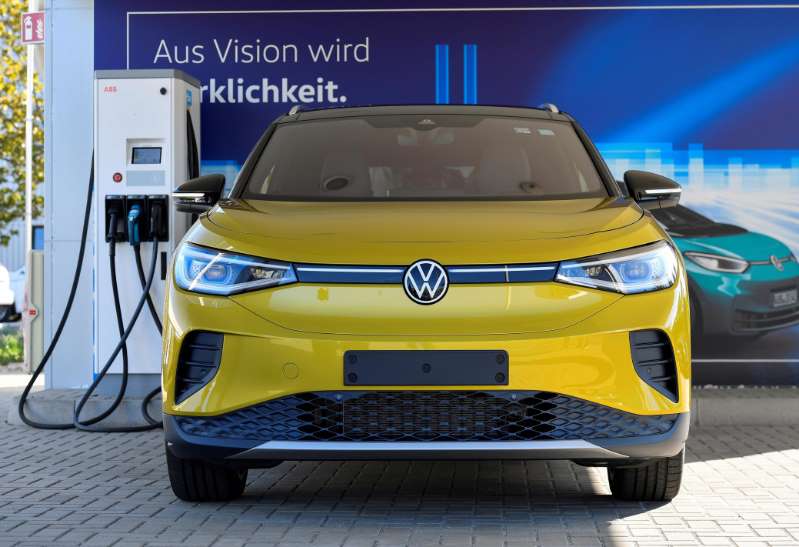The group wants to accelerate the transition to a software-driven mobility provider.

While its e-cars are gradually rolling, the VW Group is increasingly focusing on the associated software and the development of mobility services. The group's main brand VW announced on Friday that it wanted to accelerate the transition to a technology company that will also have self-driving cars on offer across the range of models in the next decade.
In this way, the world's second largest car manufacturer after Toyota wants to keep tech giants such as Apple, Google and Amazon at a distance, which are penetrating the traditional business of the automotive industry. “E-mobility was just the beginning, the real disruption is still to come,” said brand boss Ralf Brandstätter. Volkswagen will change so much in the coming years as never before.
iPad on wheels
Data-based business models, with which Volkswagen intends to earn money in the future, are playing an increasingly important role. “We can imagine adding three-digit million amounts to our coffers in the next few years,” said Sales Director Klaus Zellmer during a video conference on the presentation of the “Accelerate” strategy.
Users should be able to activate additional functions in their vehicles via the Internet, such as booking a longer battery range or buying certain navigation services. The car is thus becoming a kind of “iPad on wheels” that is always online.
Subscription models
As experts believe that having one's own car is becoming less important, car sharing, driving services and subscription models are set to gain in importance. VW is already working on leasing cars for a basic fee and an additional mileage allowance. The software of the constantly growing e-car fleet is to be regularly updated via the Internet (over the air).
Volkswagen wants to build a neural network of interconnected vehicles that continuously exchange data – for example on the traffic situation, obstacles or accidents. This should make navigation systems more accurate and autonomous driving safer. In just two years, a fully networked fleet of over half a million vehicles should be on the road.
operating system
Volkswagen is developing the operating system for the e-cars, the heart on which the various services are based. There are no plans to cooperate with other manufacturers. In the future, software will be of central importance because the business models are based on it, emphasized Brandstätter.
“If you put that into a third hand, you can no longer design these business models yourself.” Other manufacturers such as Ford or the Stellantis group merged from Peugeot and Fiat Chrysler work together with Google.
New models
At the same time, VW wants to continue to accelerate in electromobility. The share of pure e-cars in sales is expected to rise to over 70 percent in Europe by 2030. That is twice as much as previously planned. In China and the USA, the group is aiming for more than 50 percent in the same period. At least one new e-model should hit the road every year.
The all-wheel drive electric SUV ID.4 GTX is due to hit the streets in the first half of the year, followed by the ID.5 in the second half of the year. The seven-seater ID.6 X electric SUV for the Chinese market will be on the program for autumn.
main business
At the same time, the models with combustion engines are also being further developed because this is still the main business. All core models such as the Golf, Tiguan, Passat, Tayron and T-Roc are to have a successor – before the last combustion platform is launched at VW in 2026.
The VW brand alone is investing around 16 billion euros in e-mobility, hybrid drives and digitization within five years. To finance this, the car manufacturer wants to reduce fixed costs by five percent by 2023. The productivity of the plants is expected to increase by five percent a year, and material costs to decrease by seven percent.
All regions should be in the black for the long term. In South America and the USA, Volkswagen is aiming for breakeven this year. Brandstätter confirmed the return target of at least six percent before special items (2019: 4.3) percent set for the year after next.

